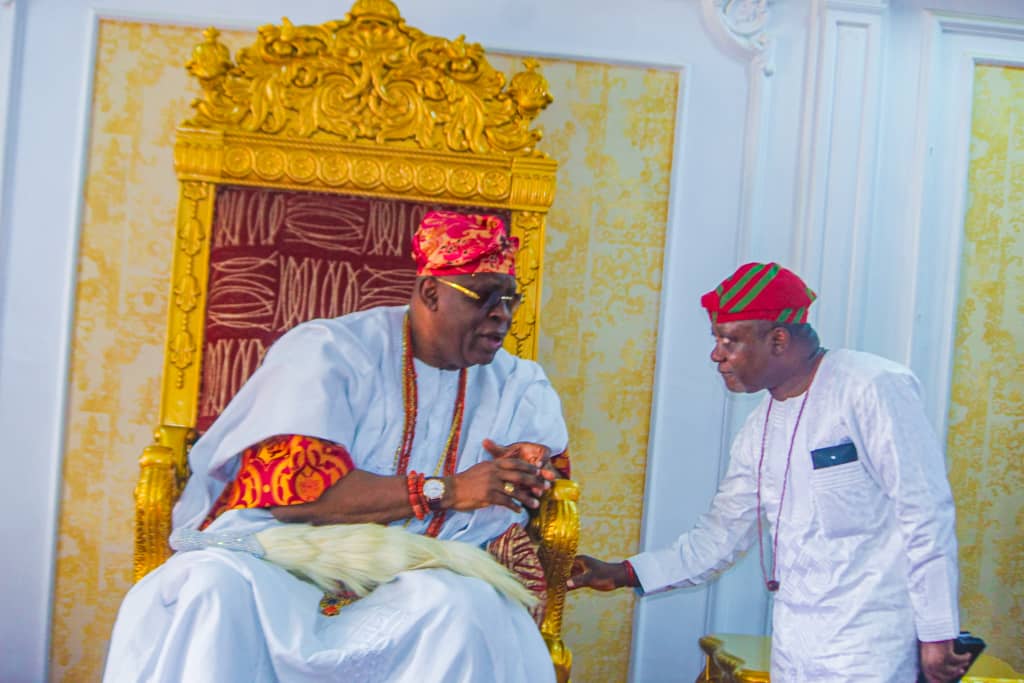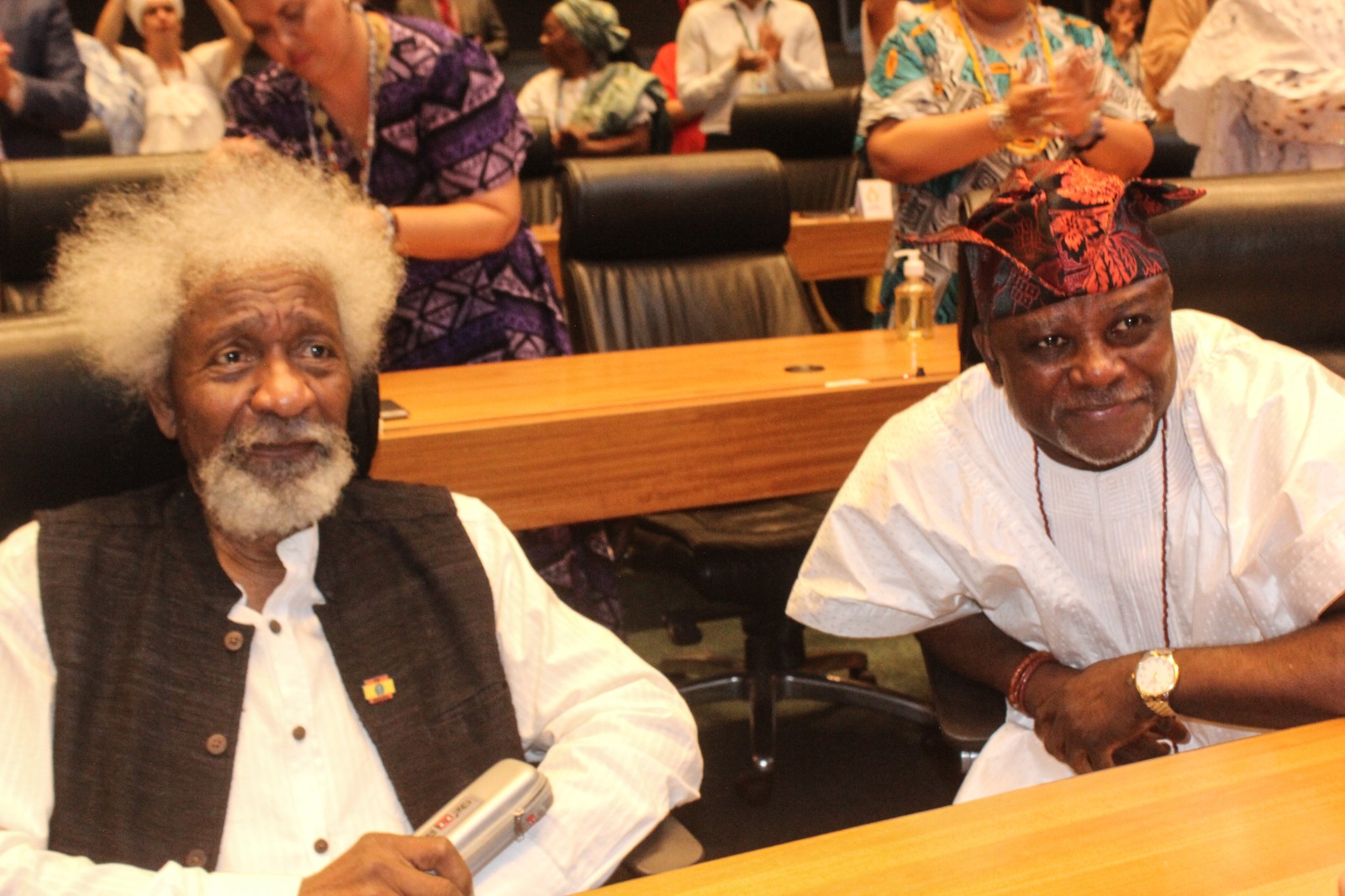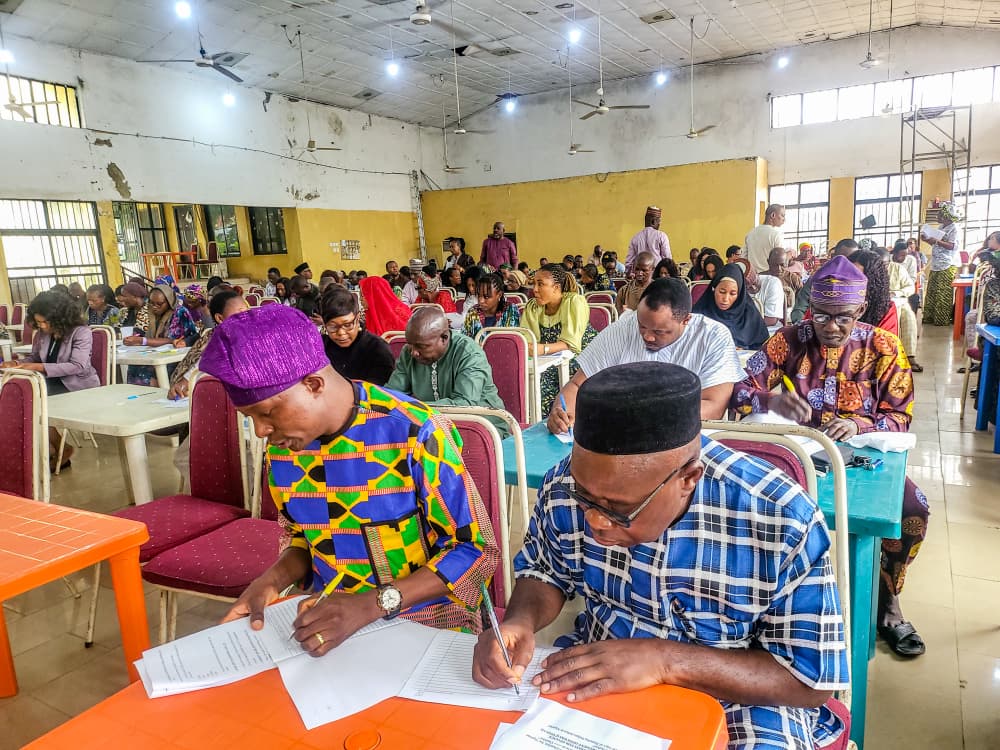 Postgraduate Diploma in Cultural Administration (PGDA) students at the National Institute for Cultural Orientation (NICO) Training School, Abuja Study Centre, have been urged to imbibe the culture of buying books, if they have to remain relevant in the academic circle in the sector.
Postgraduate Diploma in Cultural Administration (PGDA) students at the National Institute for Cultural Orientation (NICO) Training School, Abuja Study Centre, have been urged to imbibe the culture of buying books, if they have to remain relevant in the academic circle in the sector.
Executive Secretary of NICO, Dr. Barclays Foubiri Ayakoroma, who is also a visiting Associate Professor to Nasarawa State University, Keffi, made this call, while delivering a lecture on a course, titled, “Advanced Research Methodology,” on Thursday, 23rd April, 2015 at the Institute’s Headquarters, located at No. 23, Kigoma Street, Wuse Zone 7, Abuja.
According to him, for a student not to remain a spectator in academics, there was every need to buy books, especially a Dictionary, which he stressed, was a necessity, saying: “Having a Dictionary as a student is a necessity. If you don’t have one, it is unfortunate and it goes to say you are not ready to learn. Also, don’t forget; spectators don’t win crowns because they are just there to cheer. So, if you don’t want to be a spectator, buy books and a Dictionary which should be a must-have in your library.”
Teaching on the use of documentation style sheets in research works, Ayakoroma, who said the Modern Languages Association (MLA) Style Sheet and American Philosophical Association (APA) Style Sheets are the major documentation styles used in the Humanities, further disclosed that while both style sheets use the parenthetical form of text citation, the MLA style sheet only places the author’s surname and page number when citing a direct quote; while the APA style sheet places the author’s surname, year of publication, and page number.
On what to cite and what not to cite, the NICO Boss stressed that all direct quotations as well as significant ideas, concepts, or findings borrowed or adapted from others must be cited while dictionary definition of words, well documented historical facts, and conventional knowledge broadly shared in a discipline should not be cited.
In his definition of what citations and quotations are, Ayakoroma said they are references attributable to other scholars that help to authenticate ideas by a researcher that further makes his/her research work appear scholarly, indicating that the researcher had done extensive reading in the course of the research.
Other topics treated in the course of the lecture were basic citations, quotation marks, quotations in running text, editing quotations, methods of paragraphing, and documenting references or works cited at the end of a research work.
Caleb Nor
Corporate Affairs Unit
NICO, Abuja


